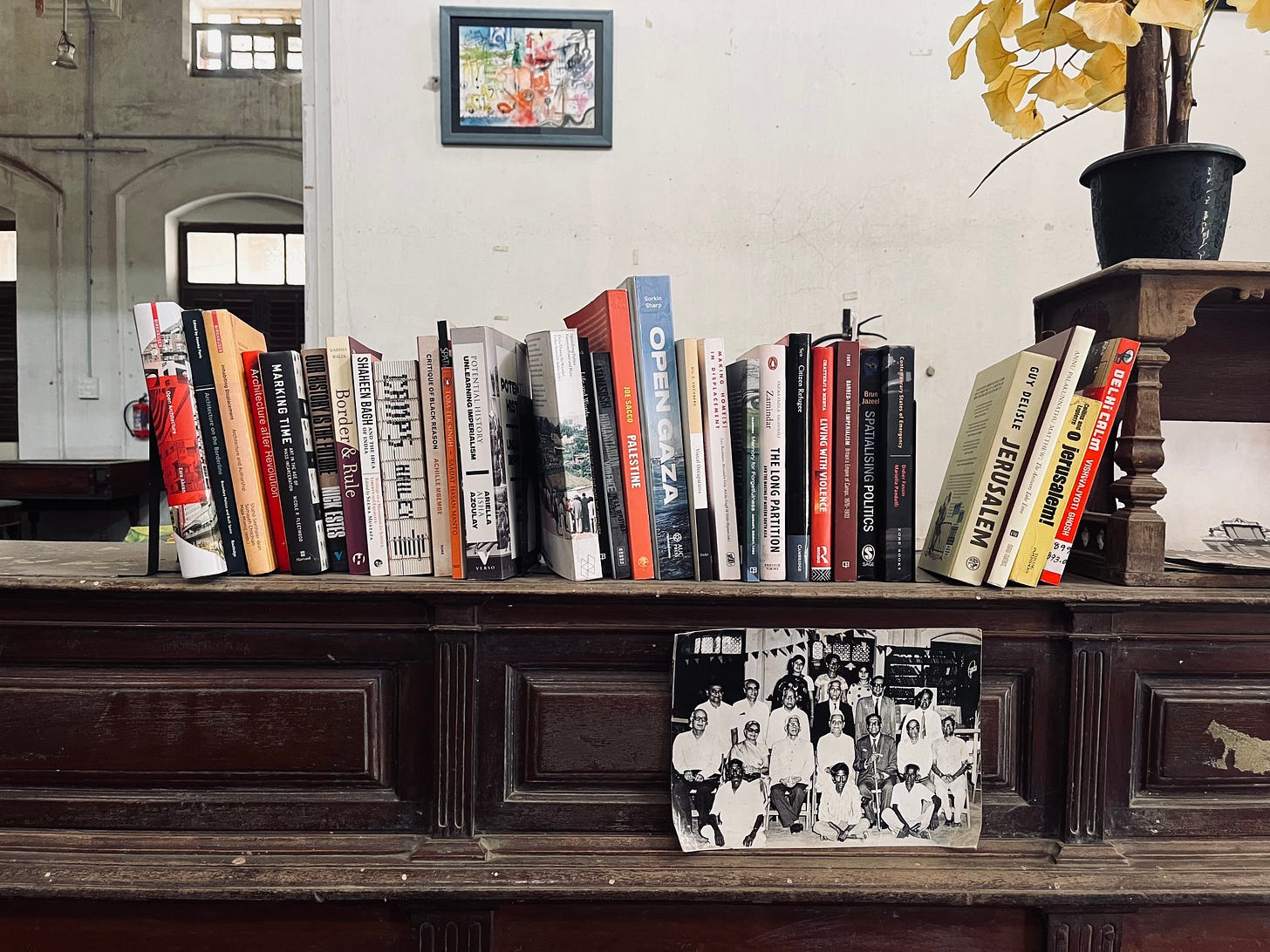The Madras Literary Society
179 | Chennai, India | Their libraries are destroyed, and their librarians cannot leave
I land in Chennai and India is all I hoped for. It's better. There is a high density of everything: people, traffic, tarmac, concrete, food. It's all compounded by that famous honking. I have masala dosa for supper and breakfast, both "little spicy, little spicy," — very spicy. The women are regal in their saris; the men charm from their autos (TukTuks) which cram together, as yellow as New York cabs.
Life is close, hot, hurried; I eat all day. Chennai is a moving, living city. Yet I hear that of all the mega cities in India, Chennai is known as "sleepy" because "nothing is going on". (It’s merely the size of London!)
I wonder what isn't happening here? Cycle lanes…
I walk alongside traffic for hours, getting a feel of things. Entering every country (even over a land border), I arrive a little nervous. I don't know what to expect so I expect the worst (the hungry dogs in Turkey and the unbearable heat in Saudi, both invalidated). Walking around a Chennai, literally and emotionally inhaling its fumes, and talking to strangers, helps me settle.
I hop over a barricade and climb beneath a locked gate onto a university campus. The path is well-worn, even if ostensibly closed. On the other side of some wasteland is a red brick building, and as I approach, I can see the blue sign of the Madras Literary Society.
I notice that the brickwork is in bad condition as I walk up the stone steps and through the ornate oak doors into the gloom of the library. Ahead of me are sixty thousand books, stacked 23 shelves high. Three women are working at the desk, dusting off and cataloguing books.
"Please may stay and read here?" I ask
"This is for members only."
"Can I become a member?"
"Were you born in India?"
No luck. Nevertheless, we talk and it’s wonderful. The library established in 1812, and the brick building finished in 1906. Women were only allowed to enter in 1947 (at independence) and now almost only women work here, some wearing face masks as they dust and clean books, others raising and lowering crates of books using pulleys or tentatively climbing the metal ladders for fear of falling. There are two full-time staff and the others, mostly college students, donate their time. I'm allowed to walk around, but "Don't touch".
I needn't touch, I breathe in the cool air of the bookshelves and the energy of the old building. I walk past Biography then beneath History of India then alongside Fiction. In seven years, one librarian has catalogued fifteen thousand. It's a slow, rewarding process. Last week they discovered a first edition of Alice's Adventures In Wonderland; some books are from the 1700s. Before independence, the library staff waited with excitement for books from Britain, which would take months to arrive by ship.
I'm pointed to a shelf of newer books beside the entrance, held on display. They have been sent from Gaza — they escaped. Their libraries are destroyed, and their librarians cannot leave (or much worse).
Looking at these books, I'm reminded of my unbelievable privilege to travel freely when so many in this moment are terrified and cannot.



